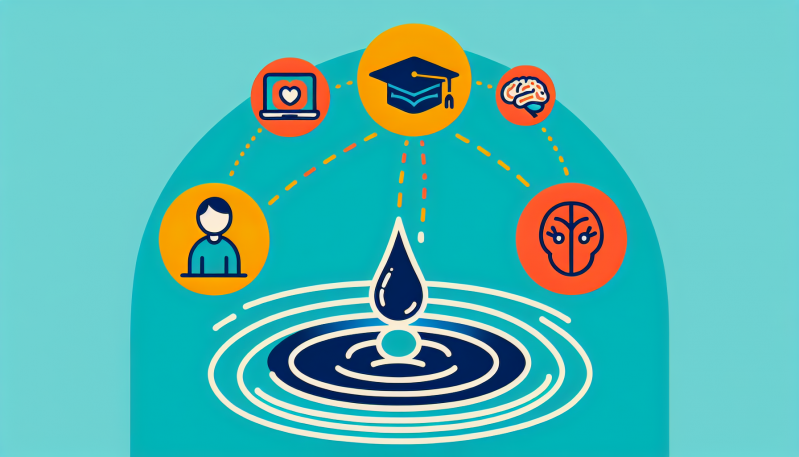In today’s rapidly evolving world, where technology and automation are reshaping the landscape of work, the question of what skills the next generation will need to succeed is more pertinent than ever. While much of the conversation has centered on the so-called hard skills – coding, data analysis, and the like – there is a growing consensus among educators, industry leaders, and mental health advocates that soft skills, particularly empathy, will be just as critical for the job market of the future.
At Friendship Week, we understand that the foundation of a kinder, more inclusive workplace is built during childhood and adolescence. Schools and parents have a unique opportunity to collaborate in cultivating empathy among students, ensuring they’re not only academically prepared but also socially and emotionally equipped for the complexities of the working world.
## Empathy in Education: More Than Just a Feeling
Empathy is the ability to understand and share the feelings of another. It extends beyond mere sympathy, allowing individuals to connect with others on a deeper level and foster genuine relationships. In the classroom, this can be nurtured through activities that promote perspective-taking and active listening.
Educators can incorporate empathy-building exercises into their curriculum in various ways. Literature and social studies classes offer natural opportunities for students to explore different perspectives and cultures. Role-playing and collaborative projects can encourage students to work together and appreciate diverse viewpoints. Service learning and community service initiatives allow students to engage with the broader community, understanding the real-world implications of empathy (or the lack thereof).
## The Role of Parents in Fostering Empathy
The home environment is equally crucial in developing empathetic children. Parents can model empathetic behavior through their interactions with others and discussions about feelings and respect. Encouraging children to express their emotions openly, and showing them how to respond to the emotions of others with kindness and understanding, lays the groundwork for empathetic skill-building.
Open conversations about current events, different cultures, and social issues can also play a part. These discussions can prepare children for the diverse working environment they will eventually enter, making them more comfortable with and respectful of differences.
## Empathy as a Job Skill
In the context of the job market, empathy translates into better communication, collaboration, and conflict resolution – skills highly valued by employers. Companies are increasingly aware of the benefits of a diverse and inclusive workplace, and empathy is the glue that can hold such a workforce together. It’s no longer enough to simply tolerate diversity; employees are expected to embrace and actively support it.
When children with developed empathetic skills enter the workforce, they contribute to a culture of understanding and respect. This not only improves job satisfaction and productivity but can also drive innovation. A team where each member feels heard and valued is more likely to come up with creative solutions and take the kind of calculated risks that lead to breakthroughs.
## The Impact of Empathy on Workplace Culture
A workplace culture that prioritizes empathy can have far-reaching effects, from reducing workplace stress and burnout to enhancing overall company reputation. Leaders who demonstrate empathy are better equipped to inspire and motivate their teams, leading to greater employee engagement and retention.
## Actionable Insights for a Kinder Generation of Workers
For educational influencers and school staffers, including empathy in professional development and teacher training can help instill its importance from the top down. For parents, seeking out resources and engaging in community events centered around mental health and inclusivity can provide additional support in their empathy-building efforts.
By fostering empathy from a young age, we’re not just preparing children for the jobs of the future; we’re laying the foundation for a society that values mental health, kindness, and DEI. As we look forward, it’s clear that empathy isn’t just a nice-to-have—it’s a must-have, for the sake of our children’s futures and the workplaces they will one day shape.
At Friendship Week, we’re dedicated to supporting this vision, by offering resources and guidance for anyone invested in creating a kinder, more empathetic world. Together, we can prepare the next generation for a workplace—and a society—where empathy is woven into the very fabric of how we do business.


